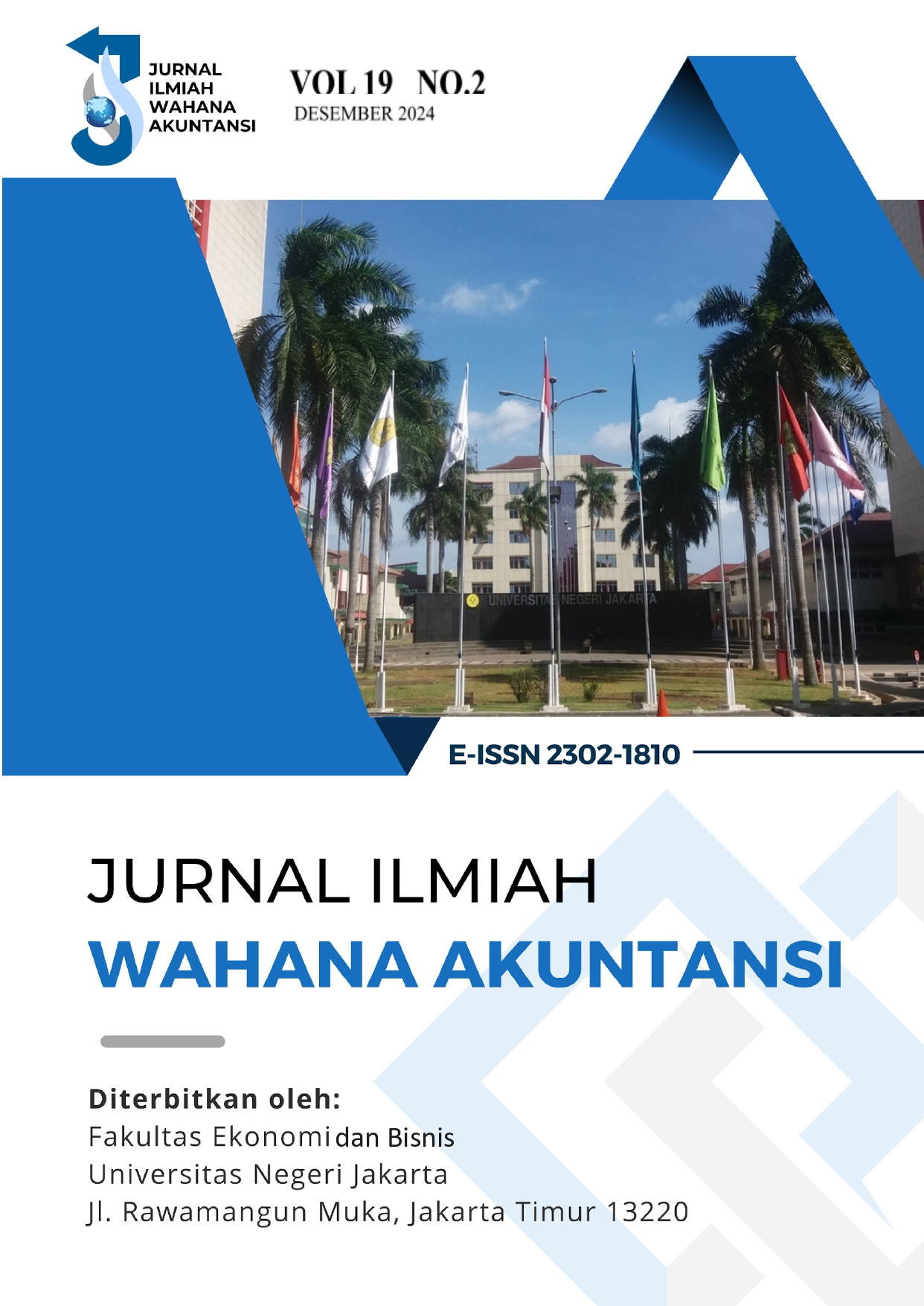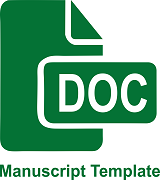Akuntansi Keuangan dalam Era Digital: Peran Teknologi Blockchain dan AI dalam Transparansi dan Akuntabilitas
DOI:
https://doi.org/10.21009/Wahana.19.0217Keywords:
Akuntansi keuangan, Blockchain, Artificial Intelligence, Transparansi, AkuntabilitasAbstract
The development of digital technology has changed various aspects of financial accounting, particularly in terms of transparency and accountability. Two key technologies that have the potential to revolutionise modern accounting systems are Blockchain and Artificial Intelligence (AI). Blockchain offers a secure, transparent, and immutable record-keeping system, while AI is able to automate the analysis of large amounts of data and detect suspicious patterns. This article aims to review the literature related to the implementation of Blockchain and AI in financial accounting and analyse their impact on transparency and accountability. The review shows that although these two technologies have great benefits, there are still various challenges such as immature regulations, limited technological infrastructure, and the readiness of human resources in the accounting industry.
References
AICPA. (2021). The impact of artificial intelligence on the accounting profession. Journal of Accountancy, 232(5), 25-38.
Al-Htaybat, K., & von Alberti-Alhtaybat, L. (2017). Big Data and corporate reporting: impacts and paradoxes. Accounting, Auditing & Accountability Journal, 30(4), 850-873.
Bell, T. B., Peecher, M. E., & Solomon, I. (2020). The future of auditing in the age of artificial intelligence and blockchain. Auditing: A Journal of Practice & Theory, 39(1), 1-19.
Brynjolfsson, E., & McAfee, A. (2017). Machine, platform, crowd: Harnessing our digital future. W. W. Norton & Company.
Coyne, J. G., & McMickle, P. L. (2017). Can blockchains serve an accounting purpose? Journal of Emerging Technologies in Accounting, 14(2), 101-111.
Dai, J., & Vasarhelyi, M. A. (2017). Toward blockchain-based accounting and assurance. Journal of Information Systems, 31(3), 5-21.
Deloitte. (2021). Blockchain in accounting: Challenges and opportunities. Deloitte Insights.
Ernst & Young. (2020). AI and blockchain in financial reporting: Opportunities and challenges. EY Accounting and Finance Report, 14(3), 67-82.
Higgins, A. (2019). Integrating blockchain and AI in financial reporting: Opportunities and threats. International Journal of Accounting Technology, 10(2), 55-78.
IBM. (2021). AI and blockchain for financial transparency: A new era of accounting. IBM Research Journal, 45(3), 112-129.
Jensen, M. C., & Meckling, W. H. (1976). Theory of the firm: Managerial behavior, agency costs, and ownership structure. Journal of Financial Economics, 3(4), 305-360.
Kokina, J., Mancha, R., & Pachamanova, D. (2017). Blockchain: Disrupting accounting and auditing. Journal of Emerging Technologies in Accounting, 14(2), 91-100.
Liu, C., & Stewart, T. (2020). The role of AI in fraud detection: A systematic review. Accounting and Finance Review, 29(4), 124-139.
Moffitt, K. C., Rozario, A. M., & Vasarhelyi, M. A. (2018). Blockchain technology and its implications for the audit profession. Current Issues in Auditing, 12(2), A19-A28.
Moll, J., & Yigitbasioglu, O. (2019). The role of internet-related technologies in shaping the work of accountants: New directions for accounting research. The British Accounting Review, 51(6), 100833.
Nakamoto, S. (2008). Bitcoin: A peer-to-peer electronic cash system. White Paper.
PwC. (2022). How AI and blockchain are transforming financial reporting. PwC Report Series on Digital Accounting Innovations.
Quattrone, P. (2016). Management accounting goes digital: Will the move make it wiser? Management Accounting Research, 31, 118-122.
Richins, G., Stapleton, A., Stratopoulos, T., & Wong, C. (2017). Big Data analytics: Opportunity or threat for the accounting profession? Journal of Information Systems, 31(3), 63-79.
Schmitz, J., & Leoni, G. (2019). Accounting and auditing at the time of blockchain technology: A research agenda. Australian Accounting Review, 29(2), 331-342.
Smith, S., & Castonguay, J. (2019). The evolving role of AI in forensic accounting. Journal of Forensic and Investigative Accounting, 11(2), 254-273.
Sutton, S. G., Holt, M., & Arnold, V. (2018). The impact of blockchain on the future of accounting. International Journal of Accounting Information Systems, 28, 1-10.
Tapscott, D., & Tapscott, A. (2016). Blockchain revolution: How the technology behind Bitcoin is changing money, business, and the world. Penguin.
Tysiac, K. (2021). The role of AI and automation in modern accounting practices. CPA Journal, 91(4), 12-18.
Vasarhelyi, M. A., Kogan, A., & Tuttle, B. M. (2015). Big data in accounting: An overview. Accounting Horizons, 29(2), 381-396.
Verhoef, G., & Samkin, G. (2022). The digital transformation of accounting: Past, present, and future trends. Accounting History Review, 32(1), 1-25.
World Economic Forum. (2020). The future of financial reporting: Blockchain and AI integration. WEF Reports on Digital Finance.
Yang, D. C., & Vasarhelyi, M. A. (2020). The effect of blockchain and AI on financial statement audits. Journal of Accounting Research, 57(5), 1325-1356.
Zhang, Y., Xiong, F., & Li, L. (2020). The application of blockchain in financial accounting: A review of literature. Journal of Accounting and Finance, 20(2), 45-63.
Zhou, W., & Piramuthu, S. (2019). AI-driven accounting systems: Potentials and limitations. Artificial Intelligence in Accounting Review, 15(3), 77-92.
Downloads
Published
How to Cite
Issue
Section
License

Jurnal Ilmiah Wahana Akuntansi is licensed under a Creative Commons Attribution-NonCommercial-ShareAlike 4.0 International License.
Articles in Jurnal Ilmiah Wahana Akuntansi are Open Access articles published under the Creative Commons CC BY-NC-SA License. This license permits use, distribution and reproduction in any medium for non-commercial purposes only, provided the original work and source is properly cited. Any derivative of the original must be distributed under the same license as the original.











